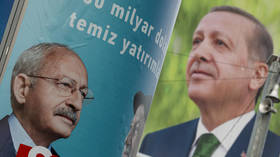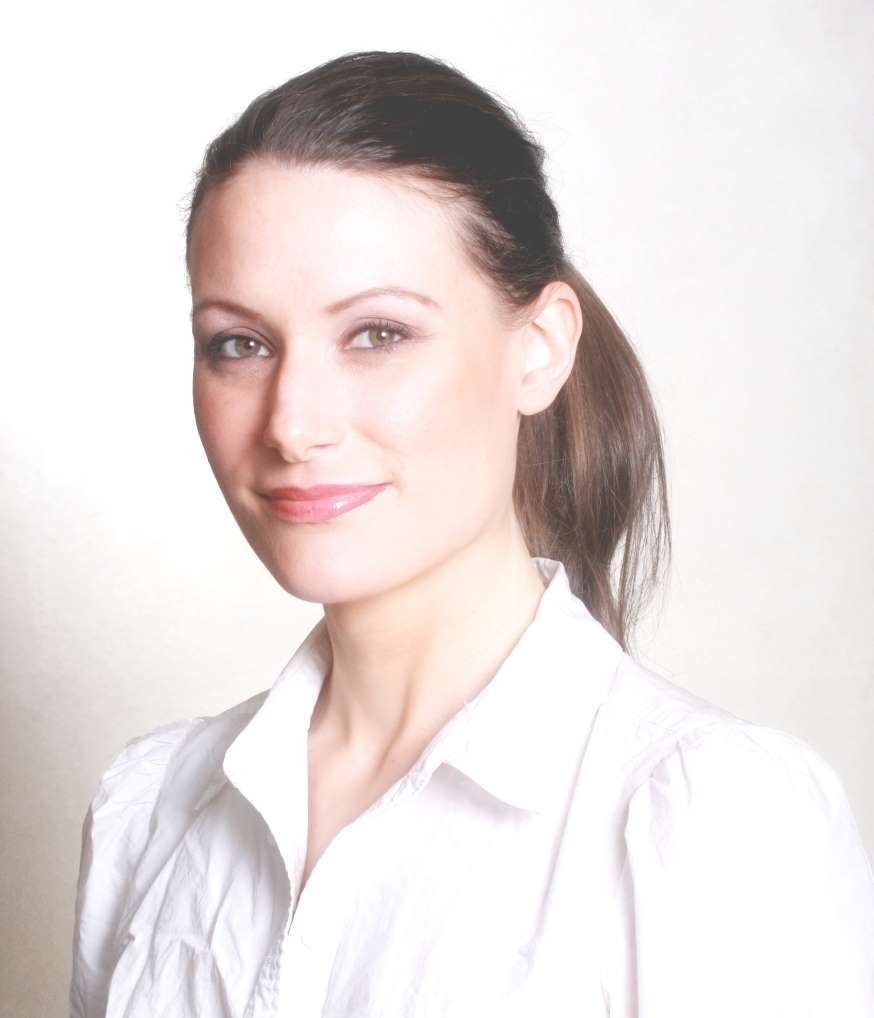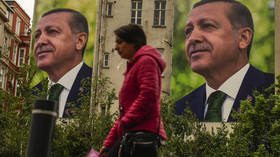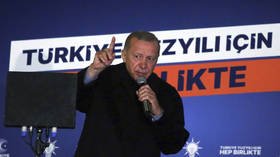The EU hopes Türkiye emerges from the presidential election as a subservient ditz

The EU is dangling bloc membership in front of yet another candidate country like it’s an engagement ring. One that desperately needs an independent appraisal of its true value.
Turkish voters are being seduced with visions of European Union integration in the heat of an election whose first round was so close that it’s now headed for a runoff on May 28. And the opposition candidate, Kemal Kilicdaroglu, is speaking as if choosing him over incumbent President Recep Tayyip Erdogan will then lead Türkiye to finally living happily ever after in the arms of Brussels. “Our main goal is membership in the European Union. Of course we want to be part of the civilized world,” Kilicdaroglu said last month. “We will fulfill people's longing for democracy. That's the biggest change and it won't only be seen here in Türkiye but by the whole world," he told Deutsche Welle in an interview, adding that he would “turn towards the West.”
There’s nothing wrong with self-improvement when it’s done for yourself. Even the self-styled Western bastions of freedom have a long way to go to match the unrealistic image that they project of themselves as supermodels of democracy. But the Turkish opposition is talking like it’s ready to give the country a facelift, butt lift, some new dental veneers (readily available in Türkiye, apparently), as well as upsizing to Double Ds just so that Brussels finds it more attractive. Now why would they think that would turn Brussels’ head? Because the EU keeps saying so.
“Whatever political decisions will be after the elections, if the decisions would go towards opening the country to democracy and rule of law, if we will see reforms in the justice system, something that we've been calling for a long time, then we should start talking, for example, about an update of (the) customs union,” said Sergey Lagodinsky, the Chair of the European Parliament's EU-Türkiye delegation, to Euronews. “We can start talking in case of such reforms. We can start talking about a liberalization of visa regime.”
Yeah, come on, baby, just do whatever I tell you and then we can talk about taking this relationship to the next level, like a liberal visa regime where you can come and go freely at my place and even start leaving your toothbrush there. Sounds a lot like the kind of promises made to Kiev under the European Union-Ukraine association agreement that set off the Western-backed Euromaidan protests back in 2013, when then-Ukrainian President Viktor Yanukovich refused to sign it.
Brussels uses the same pickup lines of common market and free movement promises on all the countries it’s courting – Georgia, Moldova, Serbia, Ukraine – and they’re all still waiting around to be invited to make it official while being kept on the hook with promises, even though the goal posts are constantly being moved further out.
Why Türkiye hasn’t just blocked Brussels’ number yet is beyond me. The longtime NATO ally applied to the EU’s predecessor, the European Economic Community, in 1987, and wasn’t recognized as an EU membership candidate until 1999, and still isn’t a member. That’s a long time to be sitting by the phone. Yet Türkiye has gone out of its way to allow NATO and EU countries to establish military bases inside its territory for Western wars in the Middle East and Africa. It has also saved the EU from being overwhelmed by migrants displaced by Western military interventions in Africa, by holding them in camps on the EU-Türkiye border. And more recently, it brokered the Black Sea Grain Deal that the West so desperately wanted to feed the world with Ukrainian grain – only to end up flooding the EU with it and then having to bail its own farmers out.
All of Türkiye’s efforts to accommodate the EU still clearly aren’t enough for Brussels. When asked last year about Ankara’s prospects of joining the bloc, European Commission President Ursula von der Leyen replied that “there is no progress.” The EU has cited Türkiye’s “human rights record” to justify its foot-dragging, as well as Ankara’s relationships with its neighbors. Meanwhile, it calls Ukraine, which possesses the exact same flaws, the “great defender of European values.”
At least incumbent Erdogan recognizes that waiting around for Brussels is a fool’s game – as various bloc diplomats privately admit – and is willing and able to at least leverage his country’s worth, even though the EU is constantly negging it. “Türkiye is not in need of Europe. It is Europe that is in need. Even though they do not want to see it, the prescription for their increasingly chronic problems is Türkiye, Türkiye's full membership. This should be known as such. We are not and will not be anyone's plaything. We are not, and will not be, a servant to be treated according to someone's whim. Those who think that they can enslave Türkiye with threats are ignorant of their own history,” Erdogan once said.
Erdogan also socked it to EU chief diplomat Josep Borrell last December when Borrell demanded that Türkiye sanction Russia. Erdogan responded by asking, “Who is he to assess our relations with Russia with respect to sanctions?”
Erdogan seems to understand that Brussels is selling the fantasy that if a country gives up its independence, then Brussels will take care of it – someday. Maybe. Hey, a country can daydream and doodle little hearts with their name and that of Brussels inside, right? While dragging its feet, the EU wants to keep dictating how potential member nations behave and which of its friends it can still hang out with. Certainly not the Russians.
It all sounds so toxic that it’s no wonder that Erdogan figures Türkiye would be better off staying single, standing on its own two feet, and playing the field.
The statements, views and opinions expressed in this column are solely those of the author and do not necessarily represent those of RT.















